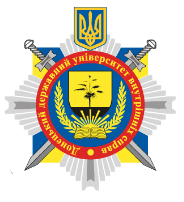SEPARATE ISSUES OF PROVOCATION TO COMMIT A CRIMINAL OFFENSE IN CRIMINAL PROCEEDINGS RELATED TO THE SALE OF NARCOTICS
DOI:
https://doi.org/10.32782/2523-4269-2023-84-57-62Keywords:
criminal offence, provocation, control over the commission of a crime, covert (exploratory) actions, investigative activity, evidence.Abstract
The article examines the theoretical provisions of the current legislation, which are covered by the conduct of secret (investigative) investigative actions in criminal proceedings regarding the sale of narcotic drugs from the standpoint of the permitted behavior of law enforcement agencies and persons involved in confidential cooperation, which provides guidelines for parties to criminal proceedings and the court in in assessing the presence or absence of provocation. Provocation – is the artificial creation of conditions creation of conditions for a person to commit a criminal offense and his desire to commit it, while law enforcement agencies have no objective grounds to believe that this criminal offense was committed without the intervention of law enforcement officers or their agents. The criteria for distinguishing control over the commission of a crime and provocation of law enforcement agencies should include: a) provocation is helping a person to commit a crime that he would not have committed if law enforcement agencies or persons acting on their behalf had not facilitated or influenced this for the same purpose on the behavior of a person by violence, threats, blackmail; b) if the actions of agents working undercover encouraged a person to commit a crime, and nothing predicted that the crime would have been committed without this intervention, then such actions of agents go beyond the limits of permissible and constitute provocation; c) every fact and circumstance during the control of the commission of a crime must have appropriate documentary evidence, and therefore such control must be properly documented.
References
Статистичні дані. Звіт судів першої інстанції про розгляд матеріалів кримінального провадження за 2019–2022 р. URL: https://court.gov.ua/inshe/sudova_statystyka/ (дата звернення: 20.09.2023).
Кримінальний процесуальний кодекс України. Відомості Верховної Ради України. 1992. № 22. Ст. 303. URL: https://zakon.rada.gov.ua/laws/show/4651-17# (дата звернення: 10.09.2023).
Словник української мови. URL: http://sum.in.ua/s/faktychnyj (дата звернення 20.09.2023).
Альошина О. І. Провокація злочину (кримінально-правове дослідження) : автореф. дис. … канд. юрид. Наук : 12.00.08. Дніпропетровськ, 2007. 19 с.
Загодіренко П. О. Провокація злочину: кримінально-правовий аналіз та удосконалення діючого законодавства. Науковий вісник Міжнародного гуманітарного університету. 2013. Т. 2. № 6–1. С. 157–159.
Дудоров О. О. Про перспективи законодавчого унормування провокаційної поведінки та її правових наслідків. Вісник Асоціації кримінального права України. 2020. № 2(14). С. 14–56.
Кримінальний кодекс України від 5 квітня 2001 року № 2341-III. Відомості Верховної Ради України, 2001, № 25–26, ст. 131. URL: https://zakon.rada.gov.ua/laws/show/4651-17# (дата звернення: 20.09.2023).
Гура О. П. Заборона провокації злочину: європейський погляд (ТОП-20 рішень ЄСПЛ, цитованих в ЄДРСР). Вища школа адвокатури 2022. URL: https://www.hsa.org.ua/blog/zaborona-provokatsiyi-zlochynu-yevropejskyj-poglyad-top-20-rishen-yespltsytovanyh-v-yedrsr-2/(дата звернення: 20.09.2023).
Провокація злочину. Правова система США, 2006. URL: https://racurs.ua/ua/1846-provokaciya-zlochynu.html
Hirano, Ryuichi-Naito, Ken.-Tamiya, Hiroshi. Keijiho Jiten. Dictionary of Criminal Law. Tokyo: Ichiryusha, 1961. 264 p.
Вирок Заводського районного суду м. Запоріжжя від 04.12.2017. Справа № 332/2735/15-к. URL: https://reyestr.court. gov.ua/Review/70686008 (дата звернення 20.09.2023).
Ухвала Запорізького апеляційного суду від 21.01.2020. Справа № 332/2735/15-к. URL: https://reyestr.court.gov.ua/Review/87360572 (дата звернення 20.09.2023).





